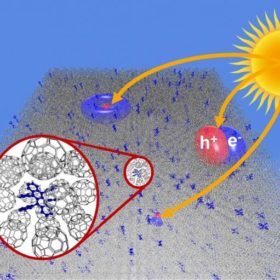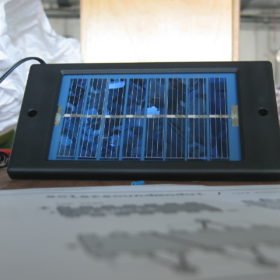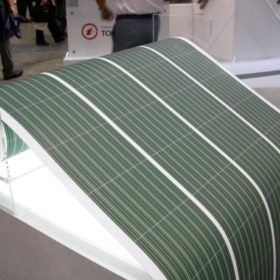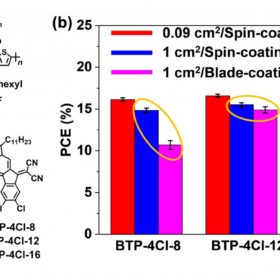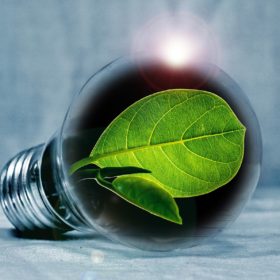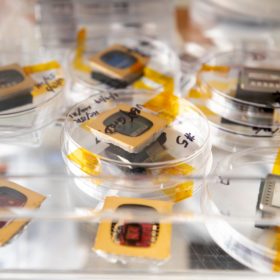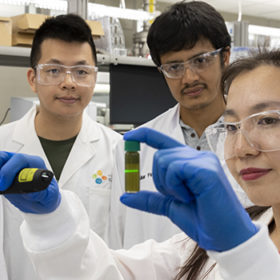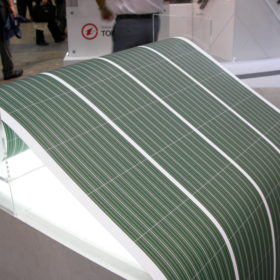Bad vibes for organic solar cells
Researchers in Germany and Belgium have discovered ‘zero point vibrations’ are responsible for performance limitations in organic solar cells. New strategies to minimize such vibration-induced voltage losses in organic PV should be investigated, say the scientists.
A 34% efficient dye-sensitized device for indoor PV
A European research team has developed a dye-sensitized PV cell based on a copper iodide complex. The device was conceived for use in self-powered and internet of things devices.
A heterojunction organic solar cell with 14.2% efficiency
Researchers in China have developed an organic solar cell using a sequential solution treatment technique in which the donor and acceptor mixture blends are sequentially spin-coated. With this technique, the researchers say they are better able to modulate the morphology of the active layer.
Self-healing polymeric coating for organic PV
A new polymer developed by Indian researchers can mend its own cracks when exposed to ultraviolet light. The unique ability makes it an ideal candidate as a smart coating for photovoltaic solar devices to prevent damages and increase performances.
New non-fullerene electron acceptor for 17% efficient organic solar cell
Chinese scientists have developed a cell with a new blade-coating method and BTP-4Cl-12, a kind of acceptor that is a derivative of the Y6 acceptor, which is widely used in organic PV applications. The researchers also claim that the cells can maintain good efficiency levels, even if its surface is lightly expanded.
Proving perovskite reliability
A new paper published in Nature claims that scientists have reached a consensus on the procedures for the testing of perovskite cells, which they say will lead to better reproducibility and comparability of data produced by different laboratories, and ultimately a better understanding of the degradation pathways affecting perovskite solar cells, and the most effective ways to mitigate them.
Mysterious new chlorophyll with potential PV applications
Japanese researchers are studying the ‘Chl f’ substance which features a pigment in photosynthesis which can absorb far-red light from the lower end of the spectrum.
Gauging non-fullerene acceptors for organic PV
U.S. scientists are trying to understand how non-fullerene small-molecule acceptors (NAFs) increase the efficiency of organic PV devices. They claim that methoxy groups embedded in the acceptors could facilitate an efficiency increase of approximately 6%.
Tungsten disulfide helps organic solar cell reach 17% efficiency
Researchers from Saudi Arabia’s King Abdullah University of Science and Technology claim to have developed a highly performant organic PV cell using tungsten disulfide flakes a few atoms thick. The stability of the device, however, is still to be evaluated.
Japanese researchers explain why organic solar cells are damaged by UV light
Scientists have observed that the efficiency of an organic PV device decreases by around 50% when it is exposed to 100-h light irradiation. They attributed this loss to increased resistance of the organic semiconductor layer.
